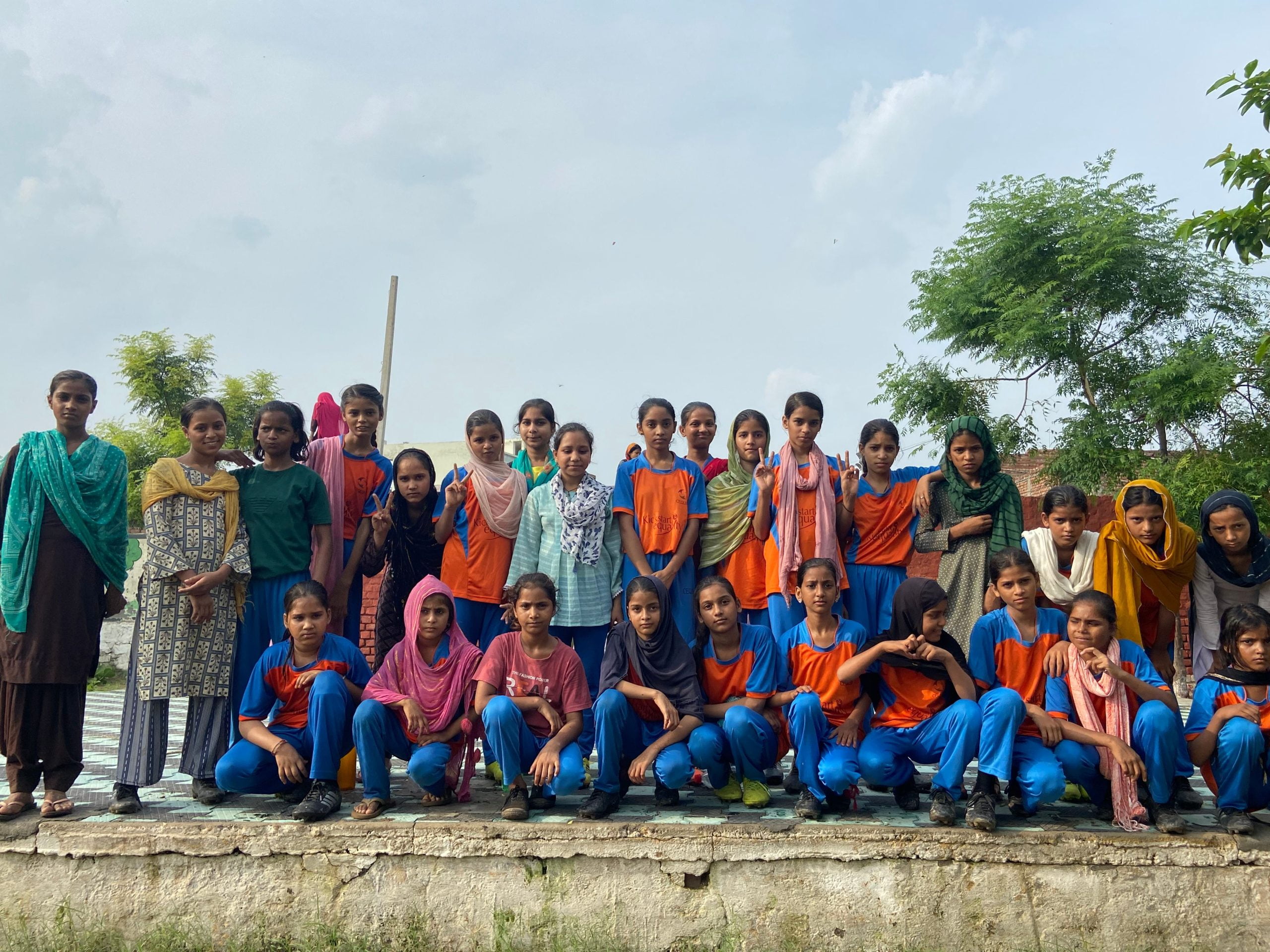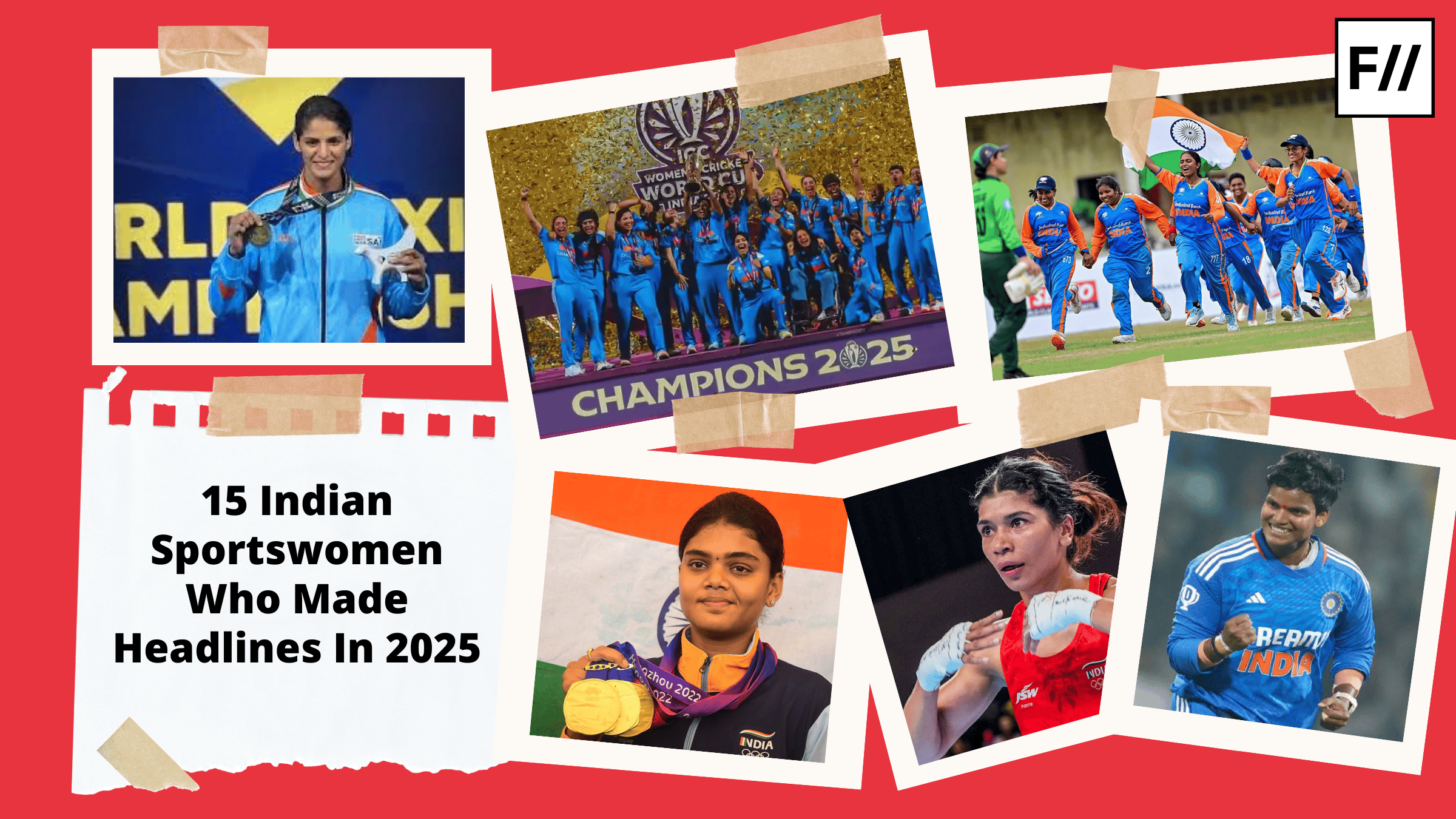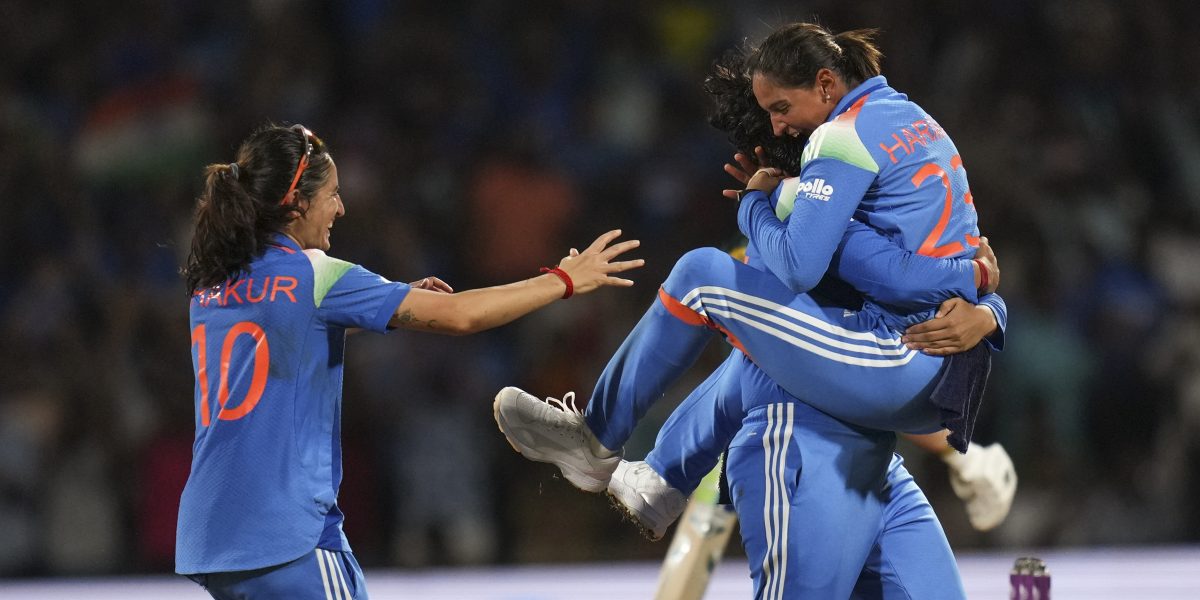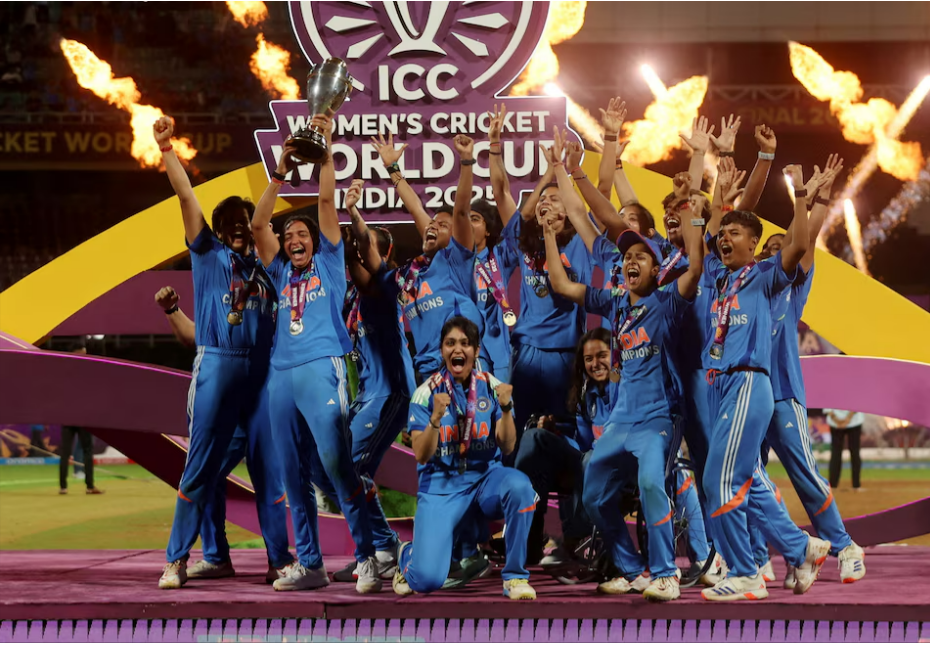Seventy kilometers south of Delhi, nestled near the bustling city of Nuh, lies the tranquil village of Ghasera in Haryana. Despite recent communal tensions during the Brajmandal Yatra pilgrimage organised by the Vishwa Hindu Parishad (VHP) in July 2023, Ghasera holds a tale of resilience and optimism, centered around its young girls. On weekends, a stroll through Ghasera’s Government Senior Secondary School unveils a heartening sight: young girls, aged between 10 to 15 years old, from underprivileged, conservative, and predominantly Muslim backgrounds, passionately engaged in the spirited game of football.
These girls, who may have never considered playing football before, now enthusiastically embrace the game.
These girls, who may have never considered playing football before, now enthusiastically embrace the game. For many of them, football was once unimaginable, overshadowed by societal norms that dictate sports are reserved exclusively for boys. In contrast, girls are often expected to focus on household chores, dutifully preparing for their future roles, while introducing football to girls from upper-caste households in urban areas is significantly easier. In these settings, people tend to be more progressive in their mindset, and most parents and family members are more likely to allow their daughters to play football while wearing the appropriate shorts and t-shirts.
What immediately captures one’s attention is the determination and joy on their faces as they chase the ball across the dusty field. Many of these girls defy societal norms by playing in their traditional salwar kameez—a testament to their courage in a community where such activities are often discouraged, especially for Muslim girls.
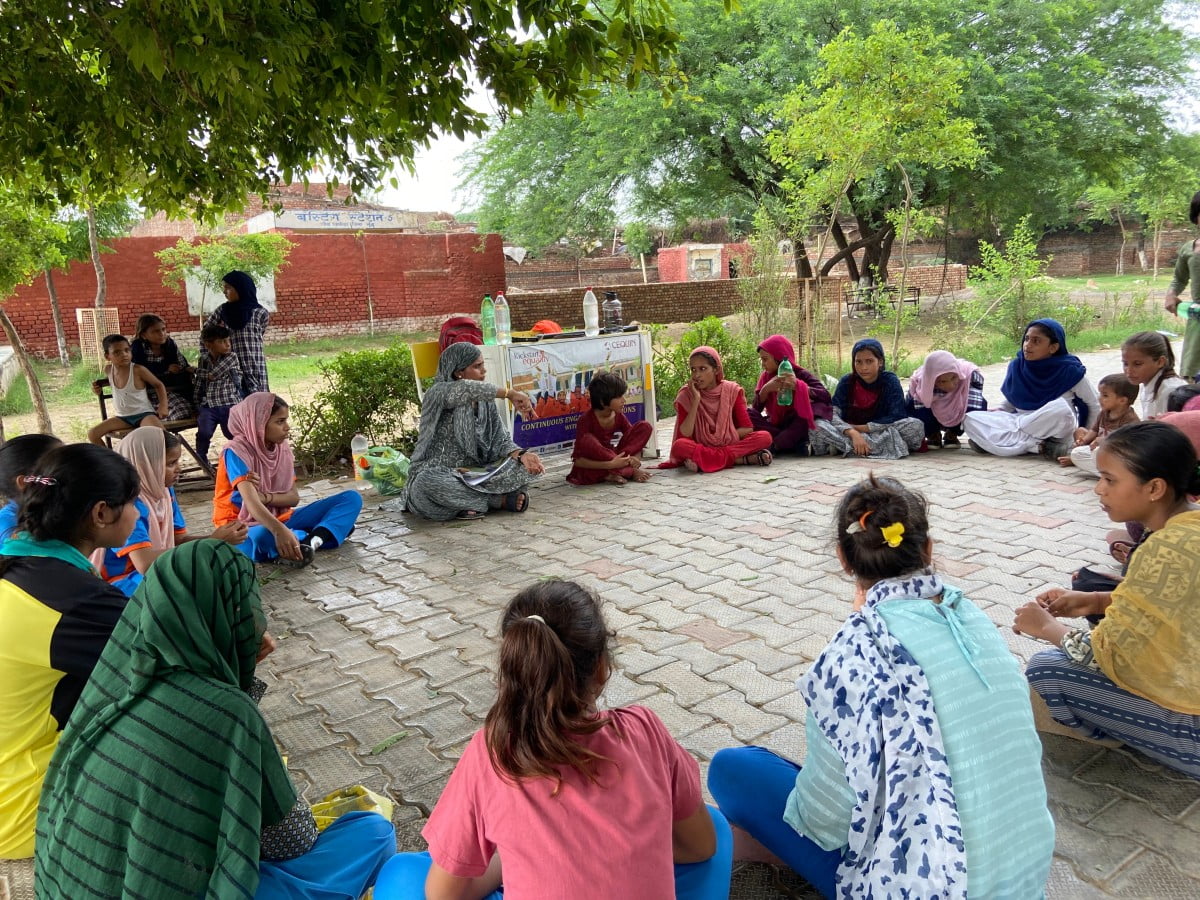
The journey of these girls extends beyond mastering football skills; it’s about overcoming personal and societal barriers. Football provides them with a space to break free from traditional roles and expectations, asserting their right to pursue their passions. FII witnessed firsthand the transformative power of their participation in sports.
Transforming lives and communities through football
The rural district of Nuh is an economically disadvantaged and politically marginalised region, heavily reliant on agriculture and related work. The area’s demographic composition is predominantly Muslim, with nearly a quarter of its population between the ages of 0 to 6 years, according to the 2011 Census. The socio-economic backwardness of this region profoundly affects its women and girls.
Early marriage, a severe form of gender-based violence, is a grim reality here, rooted in trans-generational poverty and the perpetuation of gender inequality. This practice severely limits girls’ educational opportunities and their ability to acquire skills necessary for sustainable livelihoods. The Socio-Economic and Caste Census (SECC) 2011 data highlights that only 36.6 percent of women in Mewat are literate, underscoring the profound educational disparity. These women are highly dependent and extremely vulnerable to domestic violence.
The consequences of early and multiple pregnancies are far-reaching, impacting not only the health of the young mothers but also their children. The relentless cycle of domestic drudgery, coupled with a lack of self-esteem and poor psychological well-being, ultimately erodes their confidence and hinders their ability to make decisions and participate in public life.
The relentless cycle of domestic drudgery, coupled with a lack of self-esteem and poor psychological well-being, ultimately erodes their confidence and hinders their ability to make decisions and participate in public life.
During adolescence, cultural restrictions intensify, severely limiting girls’ access to public resources and stunting their development. Consequently, these girls are exceedingly vulnerable to early marriage, which often leads to a life marked by continuous gender-based violence.
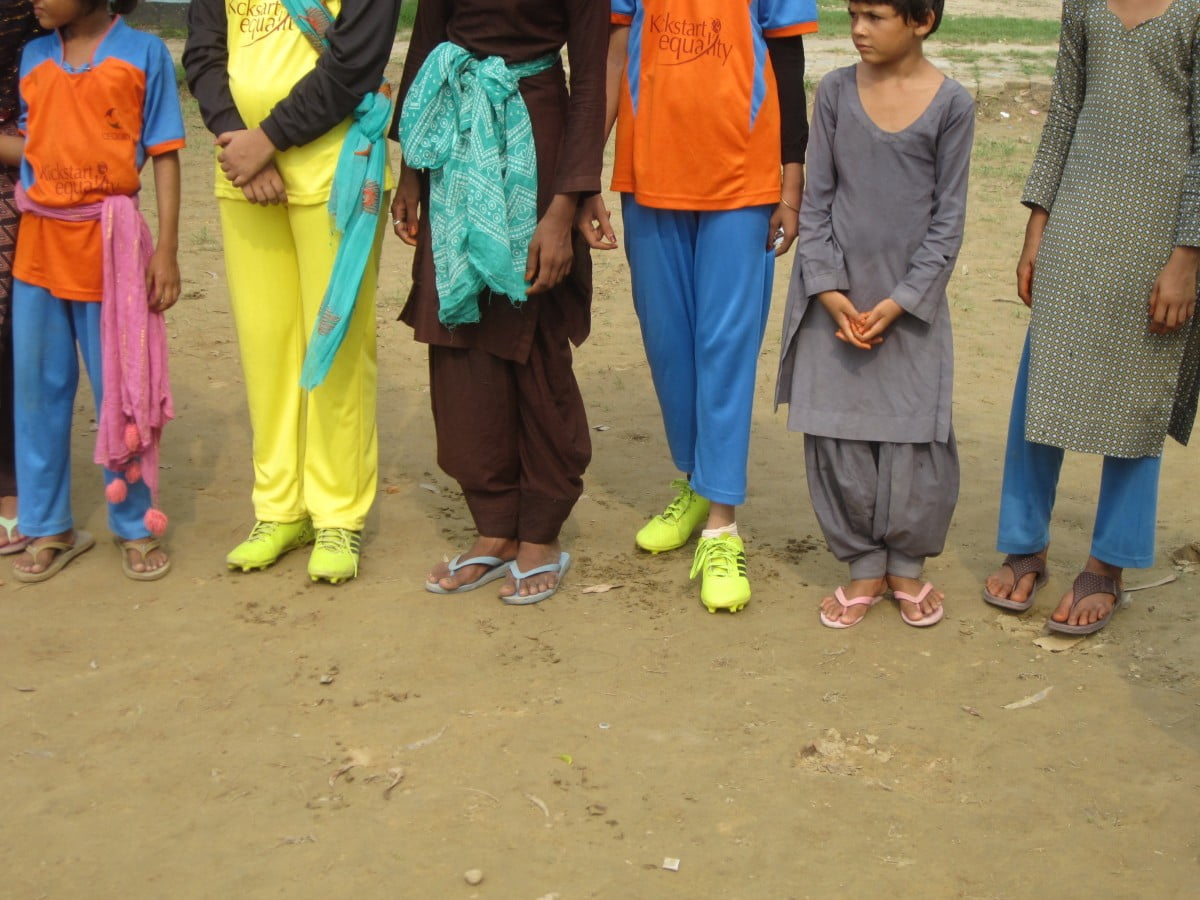
It is in these circumstances that a small yet powerful revolution is taking place on the football fields of Ghasera. The courage and perseverance displayed by these girls are inspiring. They are challenging deeply entrenched norms and inspiring others in the process. For them, football is not just a sport; it is a means of empowerment, a way to reclaim their space in a society that has long confined them to the background. As they dribble past obstacles and score goals, they are paving the way for a brighter, more equitable future for themselves and their community.
Tales of grit and determination
Amidst the dusty lanes and verdant fields of Ghasera, the stories of these young footballers come alive, each one a testament to the resilience and spirit of the girls who have taken up the sport. Their journeys are filled with personal triumphs, small yet significant victories against the odds stacked against them.
As FII sat down with the girls of Ghasera, their dreams and challenges unfolded before us like pages in a compelling narrative. Among them was Radha, a spirited ninth-grader with a deep love for football but an even stronger determination to become a doctor. When we asked about her aspirations, her eyes lit up with unwavering resolve as she declared her dream.
However, Radha’s journey wasn’t without hurdles. Despite her passion for football, her family—her father, grandparents, and other relatives—were staunchly opposed to her playing the sport. Only her mother stood by her side, offering unwavering support and encouragement in pursuit of her dream.
Only her mother stood by her side, offering unwavering support and encouragement in pursuit of her dream.
This was a recurring theme among the various girls we spoke to: their mothers were their sole supporters and encouragers. Reflecting on the initial resistance, Radha shared a poignant story of societal judgment and transformation. ‘When I first started going to the field, people would pass disparaging remarks about my parents, questioning their decision to allow a girl to play football,‘ she recounted. ‘But over time, as the community witnessed the positive impact, those very critics began sending their own daughters to join us on the field.‘
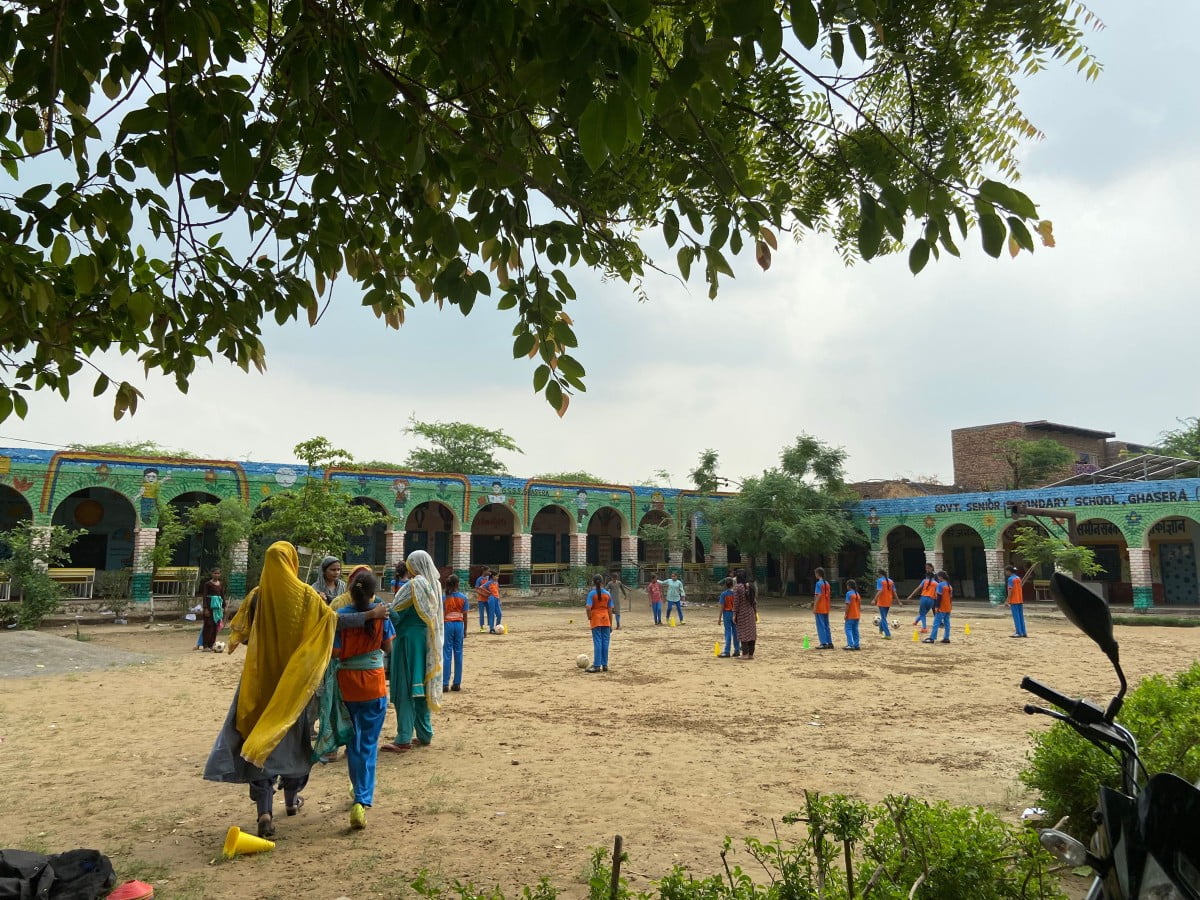
In a moment that challenged our own assumptions, FII asked Radha about her favorite footballer, expecting a familiar international name. Instead, her response resonated deeply. With a smile, Radha named Tina Didi, their coach and mentor, as her role model. Tina’s guidance and support had not only taught them football skills but also empowered them to defy societal norms and pursue their passions with courage.
Transitioning from Radha’s story of overcoming family opposition and finding support in unexpected places, we were drawn into another inspiring narrative. This time, it was the tale of Mantasha, a spirited 12-year-old footballer, brimming with dreams and determination.
‘I want to make my school and village proud, just like Sachin Tendulkar,‘ Mantasha declared with a twinkle in her eye. ‘I want to become a player like Mala Didi. I love playing football!‘
Mantasha’s journey was far from easy. Initially, the rigorous practice left her with sore muscles and exhaustion, but over time, her body adapted to the physical demands. Her passion for the game was so strong that, despite not being able to afford a proper football, she ingeniously crafted one from cloth rags.
Her passion for the game was so strong that, despite not being able to afford a proper football, she ingeniously crafted one from cloth rags.
She rallied the boys and girls in her neighborhood, turning her home into a makeshift training ground. ‘Every day, we play at my house, and I teach them how to kick, shoot, and run with the ball,’ she recounted with pride. Her leadership extended beyond the field as she convinced her entire family to start eating black gram, known for its health benefits, to support their newfound athletic lifestyle.
From confinement to community leader
Apart from these young girls, there are older ones whose lives have been transformed by football. Irfana, a 22-year-old Peer Educator, shared her story with me. ‘Whenever I asked my parents if I could step out, they would say, ‘If a Maulana’s daughter roams around freely outside, what will everyone think?’‘ she recalled. Demoralised, she felt hesitant to interact with the community, confined within the walls of her house.
One day, Irfana discovered that her marriage had been arranged. Instead of succumbing to her fate, she found strength and purpose in her role as a Peer Educator with CEQUIN. While still studying in the 12th grade, she began running mohalla paathshalas, stepping out into the community to make a difference. She went door-to-door conducting surveys of dropout children, speaking with parents about the importance of education, and involving village Panchayat members in addressing the challenges faced by their community.
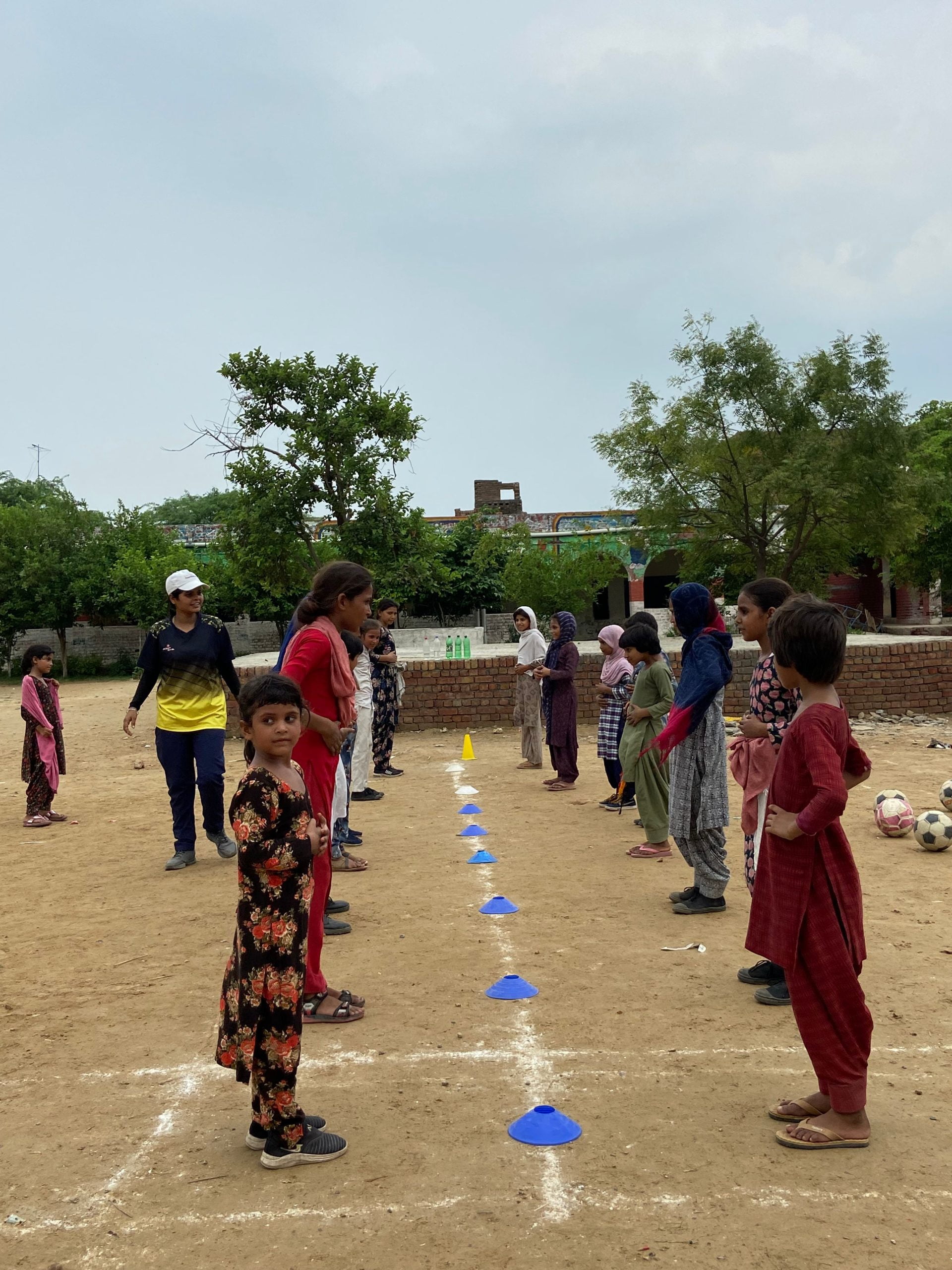
‘I started working as a Peer Educator, running mohalla paathshalas, while studying in 12th grade myself,’ she explained. ‘I began stepping out into the community, going door-to-door to conduct surveys of dropout children, speaking with parents about the importance of education, and involving village Panchayat members in the challenges we faced.‘
Today, Irfana feels confident and empowered. ‘Getting married is not the aim of my life,‘ she asserted with conviction. ‘I want to become self-sufficient.’ Irfana’s journey reflects a broader narrative of transformation, where the simple act of playing football opens doors to self-discovery, resilience, and a newfound sense of purpose.
A journey of support and aspirations
Another story that really touched our heart was that of Asifa, a vibrant 14-year-old, and her ever-supportive mother from Rozkameo village. Asifa recently joined the CEQUIN football team in Ghasera, and she’s already torn between two ambitious career paths: becoming a doctor or a professional football player.
Her mother’s unwavering support is the wind beneath her wings. ‘My mother wants me to do whatever I desire, whether it’s studying until the 12th grade or attending college,‘ Asifa shared with a bright smile. Her mother’s words echoed in our mind: ‘Ye padhe toh hum jawange iske saath jahan kahegi.‘ (If she wants to study, I will go with her wherever she desires.) Though her mother has never seen her play, she beams with pride every time she hears about Asifa’s skills on the field and her various co-curricular achievements, especially in dance.
Though her mother has never seen her play, she beams with pride every time she hears about Asifa’s skills on the field and her various co-curricular achievements, especially in dance.
‘She takes pride in her daughter winning awards,’ Asifa said, her eyes twinkling. Her mother firmly believes in the power of education, especially for girls. ‘Mewat ki ladki kuch karegi toh naam hoga ki gareeb ki beti, kuch ki hai.‘ (If a girl from Mewat belonging to a poor family achieves something, it will bring fame to us.)
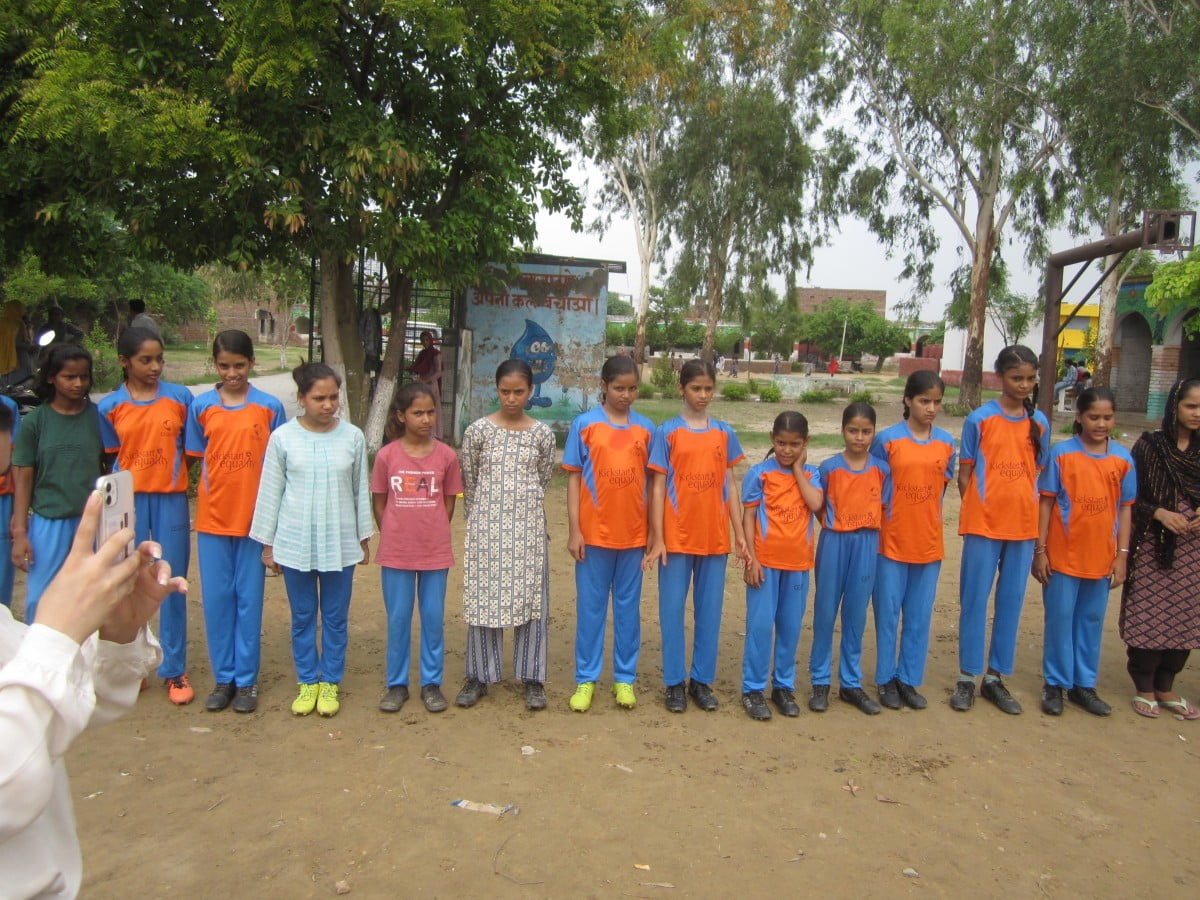
Whether it’s Asifa or Radha, their stories serve as a beacon, illuminating the lives of girls in Ghasera. These narratives stand as testaments to their unwavering resilience, the transformative power of familial support, and the guiding influence of mentors like Tina and Mala. Their journeys are a testament to determination and hope, each forging a path towards a future where dreams, whether on the football field or beyond, blossom into vibrant realities, painting a brighter tomorrow for their community.
Photos are by the author.
